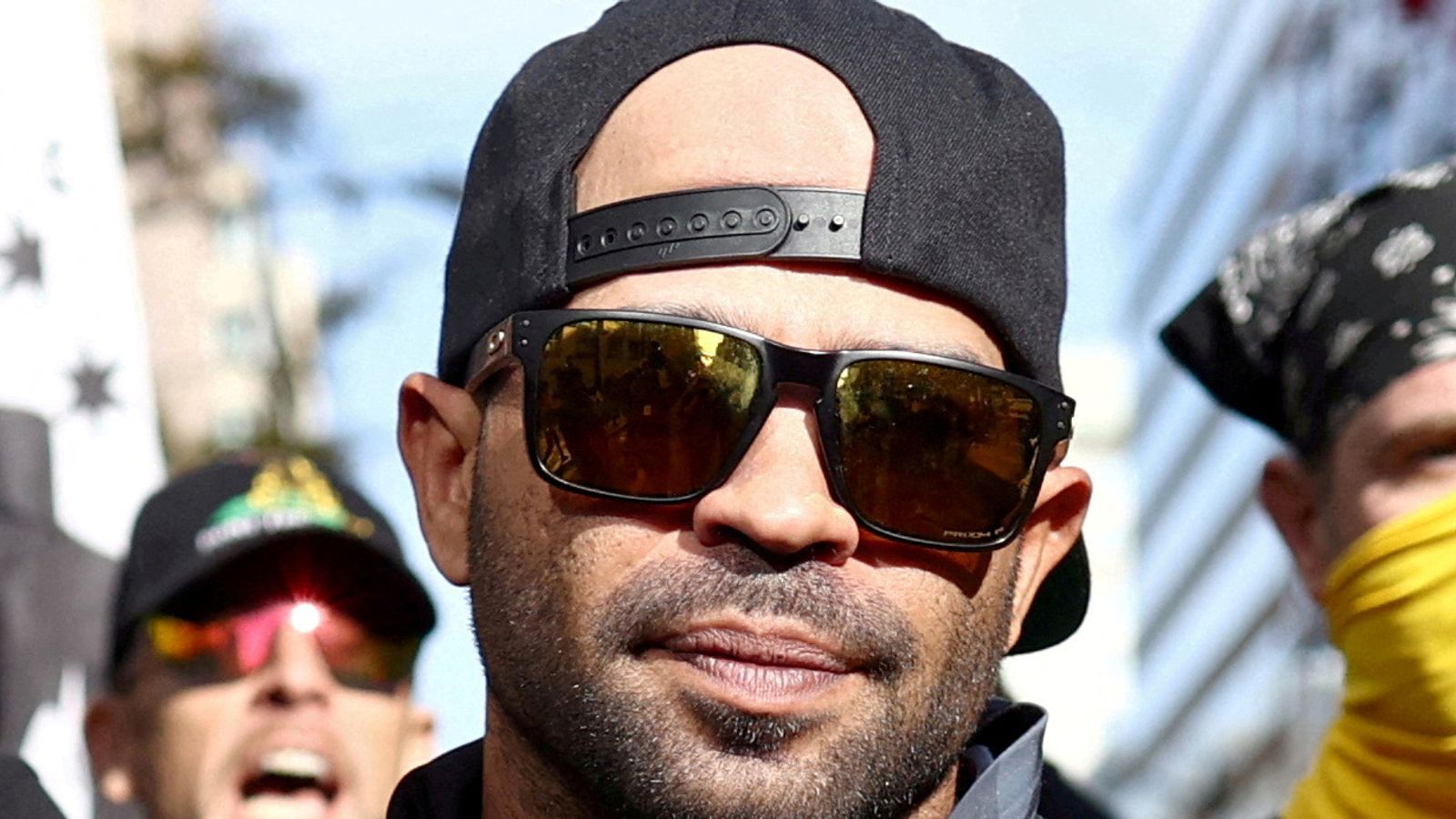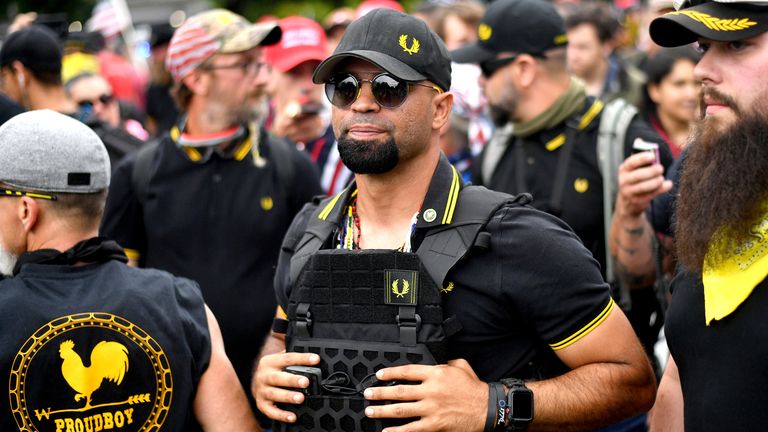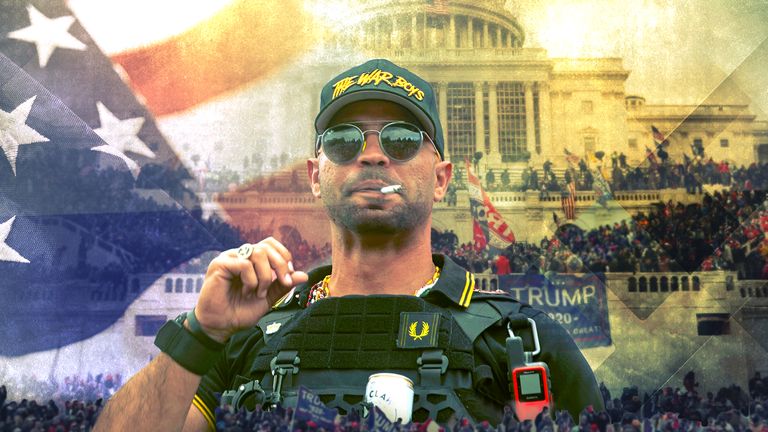Former Proud Boys leader Enrique Tarrio has been jailed for 22 years for helping plan the January 6 US Capitol riots.
Tarrio – along with three other members of the far-right group – was convicted of the rare charge of seditious conspiracy for what prosecutors say was an attempt to overthrow democracy.
Described as a street gang and a hate group, the Proud Boys have been designated as a terror group in two countries – Canada and New Zealand.
At the trial earlier this year, assistant US attorney Jason McCullough said in the days after the 2020 US presidential election the defendants had started “calling for action, calling for war, if their favoured candidate was not elected”.
Tarrio made an apologetic statement today at his sentencing, where he was handed the longest jail term to date among more than 1,100 Capitol riot cases.
Prosecutors had sought 33 years behind bars for Tarrio and described him as the ringleader of a plot to use violence to shatter the cornerstone of American democracy and overturn the 2020 election result.
His sentence tops the 18-year sentences that Oath Keepers founder Stewart Rhodes, and one-time Proud Boys leader Ethan Nordean, who were convicted by juries of seditious conspiracy and other charges.
Although Tarrio was not present at the Capitol on January 6, because he had been arrested because of his actions at a pro-Donald Trump event in the days beforehand, prosecutors say evidence suggests Tarrio “strategically calculated his arrest as a means to inspire a reaction by his followers”.
Before the judge delivered his sentence, Tarrio delivered a contrite statement, apologising to the police, citizens of Washington DC, politicians and his family for the events of January 6 and his actions.
“To the men and women of law enforcement who answered the call that day, I’m sorry,” Tarrio said.
“I have always tried to hold myself to a higher standard and I failed,” he said. “I failed miserably. I thought of myself morally above others and this trial has humbled me.”
During his statement, Tarrio tried to explain his actions leading up to January 6, saying that his thoughts were initially clouded by anger at his candidate having lost the election and media he consumed which reinforced those beliefs.
“I was my own worst enemy,” he said.
Tarrio also walked back statements he had made comparing his co-defendant Dominic Pezzola to George Washington, a statement that appeared to irk Judge Tim Kelly when it came up earlier in the proceeding.
“I have matured, however the cost of that maturity has been steep,” he said, expressing remorse for letting down family members and for not being able to attend the funeral of a family member who he said raised him to be a better person.
Tarrio also sought to downplay his political involvement, saying that he did not intend to change the results of the election on January 6 but only planned on going to speak at an event, to support Donald Trump and to support his friends.
“I am not a political zealot,” he said. “When I get back home I want nothing to do with politics, groups, activism or rallies.”
Tarrio added that he wouldn’t be saying anything different when Judge Kelly left the room, an apparent reference to his co-defendant Pezzola who shouted “Trump won” after receiving his 10-year sentence last week.
Read more:
How four Proud Boys secretly planned to overthrow American democracy
Former Proud Boys leader Ethan Nordean jailed for 18 years
“God bless this entire court,” Tarrio said in closing.
However, while Judge Kelly said he was glad to hear the apologetic comments, he said he found the remarks lacking.
“I don’t have any indication that he’s remorseful for the actual things that he’s convicted of,” he said, calling Tarrio’s statement “better than nothing.”
The Justice Department is preparing to put Mr Trump on trial at the same courthouse in Washington on charges that the then-president illegally schemed to cling to power.
The Republican frontrunner to contest the 2024 presidential elections earlier this month denied the four charges – of conspiracy to defraud the United States, conspiracy to obstruct an official proceeding, obstruction of and attempt to obstruct an official proceeding and conspiracy against rights.
He also enounced the indictment as “a persecution of a political opponent”.



